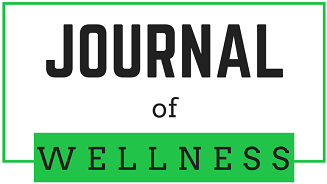
Funder
The author(s) received no specific funding for this work
Conflict of Interest
The author(s) have no conflict of interest to declare for this work.
Abstract
Introduction: The purpose of this study was to describe self-perceived well-being among Doctor of Physical Therapy (DPT) students in the United States during the COVID-19 pandemic and explore factors associated with well-being.
Methods: This observational study was cross-sectional, using an anonymous, self-administered, nationwide survey. The survey included questions about an array of factors theoretically related to well-being, and incorporated the WHO-5 Well-being Index, the Perceived Stress Scale-10, and the Brief Resiliency Scale.
Results: A total of 1,542 responded to the survey. Data from 1,537 DPT students in the U.S. were included in the analysis. Well-being was positively correlated with resilience (r = 0.457; p < 0.001), male gender (p < 0.001), heterosexuality (p = 0.022), being married (p = 0.004) or living with a partner or spouse (p = 0.036), and being physical active (p < 0.001). Well-being was negatively correlated with higher perceived stress (r = -0.686; p < 0.001), the number of friends or family who died for non-COVID reasons during the prior year (p = 0.005), food insecurity (p < 0.001), having chronic pain (p < 0.001), more days absent from school (p = 0.021), and being a first-generation college student (p = 0.007). Surprisingly, COVID-19 infection status and having at least one close friend or relative die of COVID-19 were not correlated with self-perceived wellness. Regression modeling using individual factors found that being male (p < 0.001), married (p = 0.046), and physically active (p < 0.001) were positive predictors of well-being, while having food insecurity (p < 0.001) and chronic pain (p < 0.001) were negative predictors.
Conclusion: Among DPT students in the U.S., self-perceived well-being is negatively correlated with higher perceived stress; while concurrently being positively correlated with resilience. Well-being is partially predicted by modifiable factors including physical activity, chronic pain and food insecurity. Our findings deepen the understanding of DPT students’ well-being and can help inform the services and resources provided by colleges and universities to better address modifiable factors that are predictive of well-being among DPT students.
DOI
10.55504/2578-9333.1177
Recommended Citation
Kietrys, David; Anderson, Ellen; and Ray, Suchismita
(2023)
"Self-perceived Well-being Among Doctor of Physical Therapy Students in the United States,"
Journal of Wellness: Vol. 5
:
Iss.
1
, Article 2.
DOI: https://doi.org/10.55504/2578-9333.1177
Available at:
https://ir.library.louisville.edu/jwellness/vol5/iss1/2
